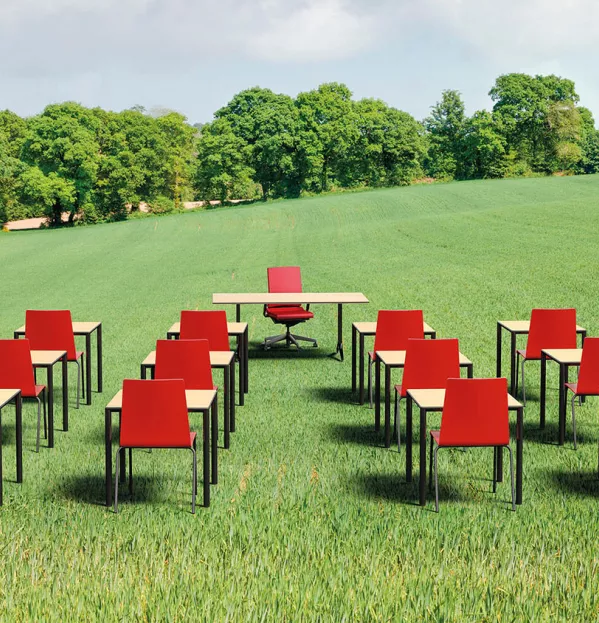Lights on. Click. Computer on. Click. Interactive whiteboard on. Click. Visualiser on. Click.
Despite being old enough to remember teaching without at least three of these things, this has been my early morning routine for much of the past 10 years.
Well, it was, until someone tried to take those things away from me. The idea arose after a discussion in class about climate change; we began to think about how our actions in school could have a wider impact.
Someone piped up that “Off-Grid Friday” seemed like a relatively simple plan to reduce our consumption of energy: we would use no electricity in class for the day. No lights, no computer, no interactive whiteboard, no visualiser, no photocopier. We wouldn’t even cheat and photocopy resources in advance.
As you may have guessed, the children were probably more enthusiastic about the idea than the staff. Where they saw exciting opportunities to do something differently and “save the planet”, we tended to see problems.
And as we planned Off-Grid Friday, it became increasingly apparent how incredibly dependent we had become on technology.
First, we had to negotiate with the office, asking if we could submit our attendance and dinner registers manually. Blinds were pulled up to their maximum on cloudy days to test the light levels. The original non-interactive whiteboard, reduced over the years to a fraction of its original size to make way for the all-singing, all-dancing, all-energy-consuming interactive whiteboard, was brought back into play.
But on the day itself, we actually did everything as usual, just a little bit differently. We got out more practical equipment in maths and learned about fractions through actually dividing up groups of objects. We cooked: an original suggestion was guacamole, but the air miles of the ingredients put us off, so coleslaw seemed a sensible alternative, as it involved seasonal root vegetables and did not require heat. We wrote up our recipes and were all impressed by how much neater the teacher’s handwriting was when not trying to do battle with an electronic pen.
I also seemed to spend more time interacting with the children and less time being distracted by a screen. I read more of our class book and, delightfully, went home at the end of the day without a headache.
“What if other classes did Off-Grid Friday, too, Miss?” one child asked me. “And other schools? That might really make a difference.”
We thought this would lead to some interesting maths work: could we calculate the potential impact on energy consumption of Off-Grid Friday happening in every primary school? We found out that there are about 20,000 primary schools in the UK. But, after much trawling, we never did manage to find out the average annual energy consumption of the average UK school. If anyone could let us know, we’d love to be able to work it out.
And maybe we could persuade you to go off-grid on Fridays, too? I promise you, it’s not as bad as you think.
Sally Kawagoe is a primary school teacher in the East Midlands. Prior to this, she spent several years teaching in Mexico, Spain and Japan
This article originally appeared in the 8 May 2020 issue under the headline “Off-Grid Friday could spark a revolution”
